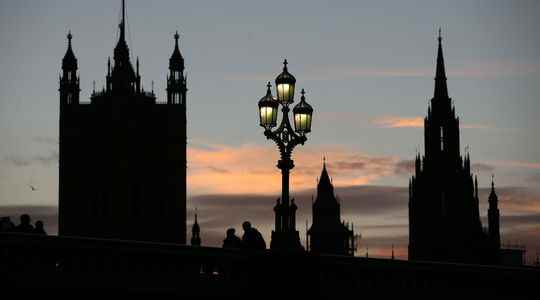In the series of sanctions taken by the United States and Europe against Russia since the beginning of the war in Ukraine, those directed against the property and personal assets of the oligarchs, members of the first circle of Russian power as well as Vladimir Putin and his family are not the least significant. The United Kingdom has decided on similar measureswhich is much the less considering that London and its region have over the years become the haven of peace for some of the most eminent personalities of Russian business and politics..
Not an oligarch who does not have a splendid residence in Hyde Park or substantial investments in one of the many English banks specializing in the management of the wealth of the ultra-rich. In December 2021, the think tank Chatham House published an explosive report, entitled “The UK’s kleptocracy problem”, showing that, since the end of the Soviet Union, London has become the favorite refuge of Russian elites. They placed there the billions of dollars of income earned by their activities in Russia, licit and illicit, and became very important clients of the banks, consulting firms, lawyers who helped them to navigate between the rather large meshes of UK regulations in this area. Since 2015, the net has certainly tightened, but without discouraging the oligarchs.
Oliver Bullough, journalist at Guardian, former correspondent in Russia and author of several bestsellers on international finance, takes up the subject by pushing the demonstration even further. For him, the UK has taken on the role of “butler” of the planet’s autocrats. In England, the “butler” (which the French term “valet de chambre” translates only partially), plays a very important role with the “master” of whom he is at the same time the servant, the confidant and sometimes the accomplice.
Pushing the metaphor, Bullough writes that the British “butler” did more than accept money from Russian kleptocrats: he provided them with palaces, educated their children, honored them in multiple ways, sometimes going so far as to their names to universities and even to grant them royal patronage. A number of members of the British high aristocracy represented their interests, sometimes sitting on their boards of directors, in return for substantial remuneration.
Certainly, the British government is trying to correct the situation, and the sanctions against Russia are a sign of this. It has tightened its legislation for a few years to expel dirty money from the City. But the task is tough: more than 100,000 legal entities in the United Kingdom are held by shell companies hosted in tax havens…
Butler of the World: How Britain Became the Servant of Tycoons, Tax Dodgers, Kleptocrats and Criminals, by Oliver Bullough. Profile, March 2022.
